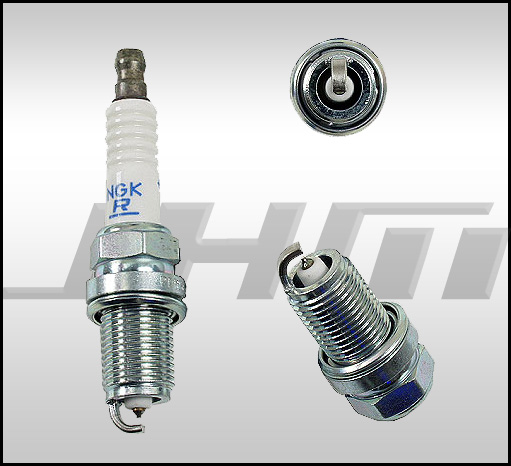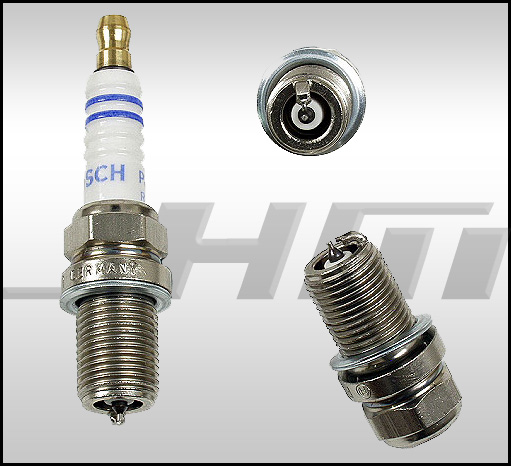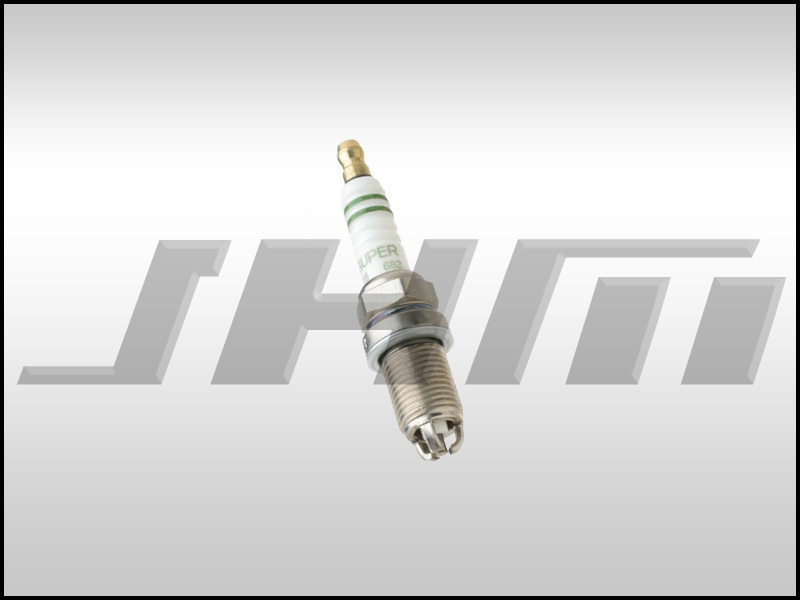UPDATE:
We noticed right away when we started the development on our JHM 2.0T Tuning some months back that my A4 was being a bit hesitant and misfiring as soon as the car would start boosting above 10psi. Our first instinct was that there was an issue with my spark plugs based on our years of firsthand experience with turbo Audis in our shop. After removing my spark plugs, we checked the gap and they were all at .045 which is why I was getting the misfire. The plugs that came out of my car were Denso PK20PR11 plugs, and looking at their website it shows that those are the plugs that Denso recommends for the B7 A4 2.0T, yet they come at their recommended gapped of .044. However, Audi recommends that the plugs be gapped at .028 which is quite different than a .044 gap, so always make sure your plugs are at the right gap before you install them as whoever installed these plugs in the car before I purchased it, did not. The increased gap over stock (recommended is .028 by Audi) adds more resistance for the coil to fire across the gap. This is okay sometimes when boost levels are stock since the engineers have to factor in spark plug wear. However when you add boost it increases the resistance to jump the gap and it is just like increasing your gap even more, hence the misfires. My car most likely would have been okay if the installer of the Denso plugs would have regapped them to spec. However we do not believe in using plugs that aren’t a close to stock gap since they were most likely engineered for a non-boosted application.
Denso Plug:

I replaced my Denso Spark Plugs with the OEM Bosch Spark Plugs we have on our website
HERE! I made sure they were gapped at .028 prior to install for our tuning development purposes. This was because we have to make sure that everything is functioning 100% perfect at the stock plug gap for those people who would be purchasing the tune and still on their original plugs (I know the gap size will increase over time as they get used, however we have seen quite a few very low mileage 2.0Ts). Needless to say we would have been okay with the off the shelf gap of .032, but they would have .004 gap less to work with as they wore down with mileage.
Spark plugs are essentially the center of your car’s ability to run and make power. When you increase your boost, you are increasing your cylinder pressure which makes your coil packs have to work harder to jump the given gap. The shorter gap will also help insure a better fire with more consistency. Considering that your plugs can fire over 100 times a second, making sure that you keep the best gap for your application is a must. That way you will always have a proper burn and not have a spark plug caused misfire. That being said, a .028 (Factory spec) gap is going to be much less strain on the coil packs/motor than .044, hence why I was misfiring when my cylinder pressure increased.
In addition, the spark plug works as a heat exchanger by pulling the unwanted thermal energy from the combustion chamber. The heat range given to a spark plug defines the spark plugs ability to dissipate the heat. Both Bosch and NGK are popular spark plug manufacturers and their heat range designations both utilize a number between 1 and 10 and are often times confused with each other. NGK goes down a number every time the heat range gets HOTTER and Bosch goes down a number every time the heat range gets COLDER. For the 2.0T the OEM Heat Range for NGK is “7” and the lower the number for NGK, the hotter the heat range is (like stated previously). For example, the BKR6E is going to be hotter than the BKR7E. The OEM Heat Range for Bosch is “6” and the lower the number, the colder it is (like stated previously). For example, the F5DPOR is going to be a colder plug than the F6DTC. The rate of heat transfer for the spark plug is determined by a few things; the length of the insulator nose, gas volume around the insulator nose, the material of the center electrode, and the construction of the porcelain insulator. Keep in mind, the spark plugs heat range has no relationship to the actual voltage that is being transferred through the spark plug!
There is a lot of information to take in to understand sparkplugs, and at time can be quite confusing. That is why we have done the research for you and are here to supply you with the correct sparkplugs for your application.
OEM Replacement Spark Plugs:
There are two different spark plugs that came in the B7 A4 2.0T. Therefor both choices will be a direct replacement for your vehicle. We have had great experiences with both of these manufactures and choice will ultimately come down to preference.
Bosch - FR6KPP332S Long Life Platinum (Heat range 6)

Click
HERE for more information!
NGK - PFR7S8EG Laser Platinum (Heat range 7)

Click
HERE for more information!
Higher Boost Applications:
The following plugs are pre gapped at a perfect width to keep misfires away on high boost applications. We use these plugs in our race cars and customer’s cars with great success.
Bosch - F5DPOR Platinum Sidefire (Heat range 5, one heat range colder than stock)

Click
HERE for more information!
Bosch - FR5DTC Tri-Electrode (Heat range 5, one heat range colder than stock)

Click
HERE for more information!
Bosch - F6DTC Tri-Electrode (Heat range 6, same heat range as stock) Note: This is a good lower cost replacement for stock cars or cars mostly stock with just a tune.

Click
HERE for more information!
NOTE: The spark plug torque spec is 30nm or 22 Ft-lbs. Remember to use Anti-Seize on the threads for easy removal and corrosion protection.
If you have any questions please feel free to ask. I am here to help!

Jake













 Reply With Quote
Reply With Quote











Bookmarks